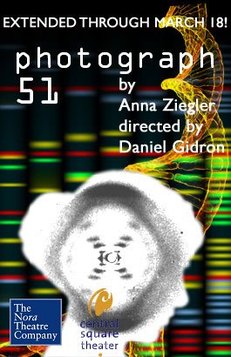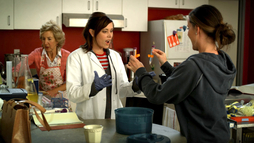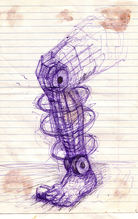DISCOVHER SCIENCE
Be an informed Scientista™ by keeping up with the latest science news!
All Scientista Science News
My Computer Could Paint That!

By Kelsey Cruz
iPhones and iPads and iPods, oh my! Technology runs our lives from every phone call we make to every television program we stream. We order food from a computer screen and propose marriage on a baseball screen. We download an album before the artist releases it and listen to it on the couch we purchased online. No person, place, or thing is safe from technology – not even art.
And until recently, understanding and analyzing art has been considered a task for humans. It’s something you have to feel to understand and appreciate, not categorize and file. But according to computer scientists Dr. Lior Shamir and Jane Tarakhovsky of Lawrence Technological University in Michigan, machines understand art by using an algorithm.
“The algorithm was actually developed for analyzing biomedical images for automatic diagnostics, early diagnostics, and for studying diseases and clinical conditions in a quantitative fashion,” Dr. Shamir explains.
iPhones and iPads and iPods, oh my! Technology runs our lives from every phone call we make to every television program we stream. We order food from a computer screen and propose marriage on a baseball screen. We download an album before the artist releases it and listen to it on the couch we purchased online. No person, place, or thing is safe from technology – not even art.
And until recently, understanding and analyzing art has been considered a task for humans. It’s something you have to feel to understand and appreciate, not categorize and file. But according to computer scientists Dr. Lior Shamir and Jane Tarakhovsky of Lawrence Technological University in Michigan, machines understand art by using an algorithm.
“The algorithm was actually developed for analyzing biomedical images for automatic diagnostics, early diagnostics, and for studying diseases and clinical conditions in a quantitative fashion,” Dr. Shamir explains.
Movie Review: Lessons From Rosalind Franklin in Photograph 51
|
April 17, 2012
By Alison Liou In the spirit of exploring the female role in different settings, the Nora Theatre Company recently gave several performances of Photograph 51, a play about Rosalind Franklin, at the Central Square Theater in Cambridge, MA. Photograph 51, by Anna Ziegler, is a play about Franklin’s life as a young scientist at King’s College in London after World War II. The play is named after the DNA image Franklin captured during her time in London that contributed to the eventual discovery of the structure of DNA, or “the secret of life”. After earning her PhD at 26 years old and spending three years abroad in France, Franklin was invited to King’s College to apply her knowledge of x-ray diffraction, a technique for imaging crystalline solids, to DNA. As a woman in the overwhelmingly male-dominated field of science, she was, naturally, looked-down upon by her male colleagues. Upon her arrival, for instance, Franklin was unhappy to find out that the general assumption was that she would be assisting Dr. Maurice Wilkins, as opposed to pursuing her own independent project alongside him. Although Franklin was able to work against the odds and stand up for her worth, her rocky start and strained relationships at the college—a result of her coldness toward others and temperamental ways according to the play—would work against her later on in the race to discover the structure of DNA. |
From Harvard to Hollywood: Our Interview with Scientista/Film Producer, Valerie Weiss, about her award-winning Rom Com, "Losing Control"
|
March 15, 2012
By Katie Banks Scientista is all about using the media to change the portrayal of and increase the visibility of women in science. Therefore we were jumping for joy when we heard about Losing Control, a new romantic comedy about a female scientist who is seeking to prove (experimentally, of course) that her boyfriend is “the one.” The film was written and directed by Valerie Weiss, who based the premise loosely off of her experiences while receiving her PhD in biophysics at Harvard Medical School. Read our interview with Valerie! |
Scientific breakthrough brings us one step closer to mind control over artificial limbs
|
March 02, 2012
By Destie Provenzano Imagine the sense of loss one feels after losing a limb, never being able to feel the softness of a loved ones face or feel the coarse fur on an adoring pet? Though scientists have made several breakthroughs in designing mentally movable prosthetic limbs, none had succeeded in restoring a person's ability to feel. Recently, scientistas in Durham have succeeded in doing the impossible in primates, bringing us one step closer to solutions for humans. |
Beware Before You Book: Study Helps Detect Opinion Spam in Online Hotel Reviews
|
February 03, 2012
By Stephanie K. Kelly In the world of online hotel reviews, finding an honest opinion can be about as rare as scoring a complimentary upgrade to the Presidential Suite. While we may think we’re pretty good at sniffing out bogus hotel reviews online, one group of Cornell researchers found that the average consumer might not be able to detect these “embellished truths” as easily as one might think. Claire Cardie, a professor of computer science at Cornell University, worked with a team of researchers who looked at 800 Chicago hotel reviews to find out just how accurate our perceptions are when it comes to online “opinion spam.” |
The Scientista Foundation, Inc. All Rights Reserved © 2011-2021 | Based in NY | [email protected]
The Network for Pre-Professional Women in Science and Engineering
The Scientista Foundation is a registered 501(c)(3) -- Donate!
The Network for Pre-Professional Women in Science and Engineering
The Scientista Foundation is a registered 501(c)(3) -- Donate!




